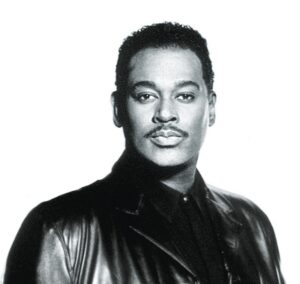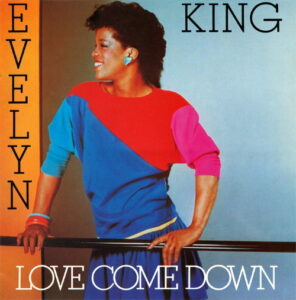Stevie Woods was a talented singer and musician who had a pretty brief moment in the sun. The Virginia native, who was the son of jazz performer Rusty Bryant, emerged in the 70s as part of the band the Crowd Pleasers. He was also an accomplished guitarist, but when he was signed by Cotillion Records in the early 80s, it was for his smooth vocals.
Teamed with German producer Jack White, Woods released his debut album Take Me To Your Heaven in 1981. The album was one of the early “Brown Eyed Pop” releases that would rise in popularity the 80s from artists such as Lionel Richie and Atlantic Starr, giving mild nods to R&B, but really aimed at the then-hot adult contemporary radio format. Take Me boasted an A-Team of backing musicians, including Ray Parker, Toto’s Steve Lukather and Chicago’s Bill Champlin. Producer White had a talent for gathering great songs from around the world and working to be the first to release them in America with one of his proteges, such as Woods and Laura Branigan. And Take Me was so doggone melodic and hooky front to back that the White formula actually worked pretty well, despite rather bland production. Woods, sounding like a young, hip Johnny Mathis, breezed through the material beautifully. The album’s first single, “Steal the Night,” was a crossover smash, hitting the top 30 on the Pop charts and slightly lower on the R&B Charts.
Woods followed up the next year with The Woman In My Life, a disappointing album that followed the formula of his debut — perhaps even more laser-focused at adult contemporary audiences — but with an overabundance of soft, rather faceless ballads such as the title cut, “Love You Back to Sleep” and “Never Gonna Let You Go” (later a hit for Sergio Mendes). It barely dented the charts. His third and final album, 1983’s Attitude, was much better, boasting nice remakes of Marvin Gaye’s “Ain’t That Peculiar” and Bobby Caldwell’s “Loving You” and the solid pop/reggae track “State of Our Affairs.” However, it failed to chart, and Woods’ short recording career in the US was essentially over.
Woods then moved permanently to Europe, where he continued to have some success on stage. He continued to record in Germany and released a number of singles, including “Rock Me Baby” in 1986, “The One That You Love” in 1987, and “Everybody Sunshine” in 1994. He went on to enjoy a strong career singing pop and jazz standards around Europe, where he used his Johnny Mathis vocal stylings to good effect (check out his take on the Mathis classic “Misty”).
Woods’ Cotillion releases quickly went out of print and stayed that way until Summer, 2010, when Wounded Bird records reissued them on CD, a welcome new life for three albums that deserved to be available again. Then, out of nowhere, Woods issued a new studio album, Quiet Storm, in the Summer of 2011. It was a combination of remakes of some of his earlier songs and some of his new compositions, all soft stuff aimed at adult contemporary audiences. Sadly, Woods died in early 2014 at the age of 62.
Ultimately, Stevie Woods was a talented singer with an very appealing vocal style that wasn’t fully tested on meaty material. One wonders where his career could have gone had it taken a slightly more soulful direction.
By Chris Rizik










